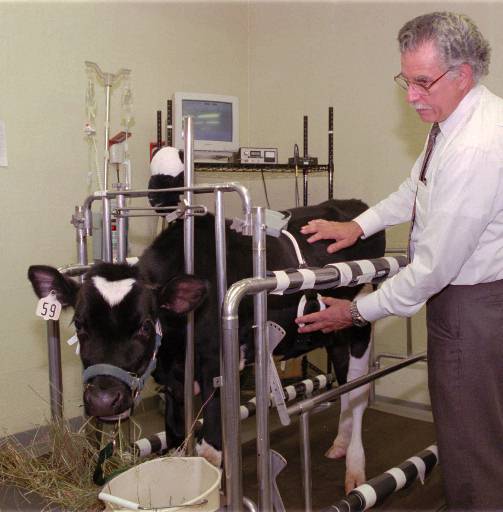On Friday, October 12th, 2012, North Penn students were exposed to the inspirational story of Gerson “Gus” Rosenberg, an alumni of North Penn High School and newest inductee of the Lifetime Achievement Hall of Fame Award for his groundbreaking work on the artificial heart. Through a slideshow presentation, Rosenberg explained not only his personal life story, but also encouraging students of all backgrounds to persevere.
They say you can’t judge a book by its cover, and that saying is especially applicable to this man’s life. Although Rosenberg described himself as a “problem child”, Rosenberg rose above his hardships and built his successful life, surpassing the many struggles he faced along the way.
“How many people really know what you want to do in life?” asked Rosenberg. When no more than five students raised their hand, he explained that “life is really a lot like the yellow brick road: you have to have courage, brains, and heart.”
His strongest point was a truth that could be applied to every single person in the auditorium. “I think one of the things really important in life is to define success for yourself.”
And in a country where ‘success’ is strained on children at such a young age, Rosenberg stood out from the rest. Until high school, Rosenberg attended Central Bucks School District, but during the summer before his tenth grade year, his parents moved to North Penn School District. Because he was academically behind, he decided to stay with a friend during the summer to take classes to be able to enter the tenth grade.
“Incidentally, I didn’t go to summer school that summer,” said Rosenberg joking, explaining the difficult situation he was now in. At North Penn, a counselor told him he would only be able to move into tenth grade by enrolling into the vocational program. According to Rosenberg, this was the real start of his journey to success.
“I thought; here’s somebody that’s going to cut me a break, I’ll do things differently and try hard.” Rosenberg performed extremely well in this program but never thought that college was a choice for him.
“Learn to be confident and surround yourself with good people,” stressed Rosenberg.
And he certainly followed that advice. After graduation, Rosenberg worked a part time job, and met an engineer student at Drexel who became his mentor. He decided to take night classes, eventually earning a two year Associate’s degree. During the Vietnam war, explains Rosenberg, the military was not as socially accepted as it is today.
“I came to a fork in the road,” said Rosenberg.
He made a decision to join the ROTC program, and explains this was a good choice, as it introduced him to many leadership skills that he would use throughout the rest of his life and career.
The years of college ahead of him were not easy, due to his lack of proper study skills. But he was persistent, and worked very hard to do well. After qualifying to get into the Bachelor’s program, Rosenberg only scored a 17% chance of getting into the mechanical engineering program.
In 1970, he earned his Bachelor’s in Mechanical engineering.
He says that he happened to be at the right place at the right time when he was asked to work on an artificial heart project at Pennsylvania State University.
“I had this passion- I loved what I was doing. I worked long hours but it wasn’t really work for me.”
Rosenberg has gone on to accomplish many things in his astounding life including a Master’s and PhD. in mechanical engineering. He is a professor at Penn State and the chief of the Division of Artificial Organs at the Milton S. Hershey Medical Center. Through his research, he has developed the world’s first implanted Left Ventricular Assist Device and an electric total artificial heart funded by NIH. He was named “Engineer of the Year” by Design News Magazine in 2002.
His research is currently focused on a pediatric LVAD, for the 400 children born every year in this country with heart damage. For the future of this medical field, he predicts refinement of artificial organ devices, and evolution in the field of disease prevention.
“I recognized opportunities; some of it was luck, but it’s important to look around and say gee- this is a good chance,” said Rosenberg, reflecting on his life journey.
In his early research, many patients passed away because of the early technology of the implants, but Rosenberg says “he had to believe in what he was doing and use scientific evidence.”
Even though Rosenberg has developed instruments that have helped save lives, this impressively influential yet modest man still stresses the simple things that make up a good person: he believes a person should strive for honesty, integrity, curiosity, and compassion.
“Always treat people the way you would want to be treated.” He also emphasizes about making an effort to acquire both wisdom and knowledge in one’s lifetime.
As for his advice to current high school students, he says “you need to be persistent, don’t take no for an answer; a student knows why he or she is having problems, but know that you can do it.”
Most importantly- have a passion for learning. “I’ve seen students with a great cumulative average, but don’t know how to solve real-life problems because they are used to the text book problems.”


David and Susan Wood • Jun 16, 2020 at 9:55 pm
Gus, we love you!